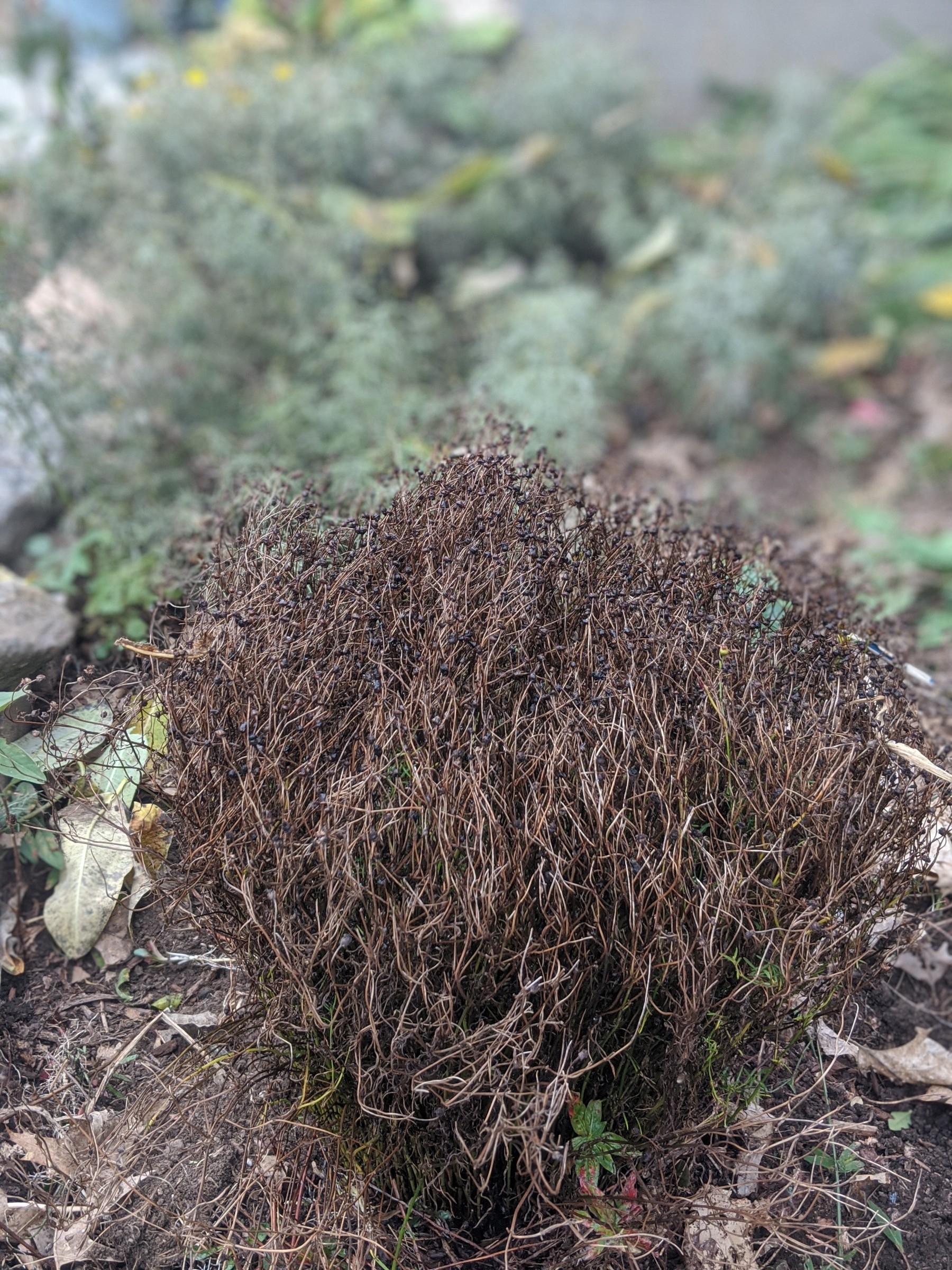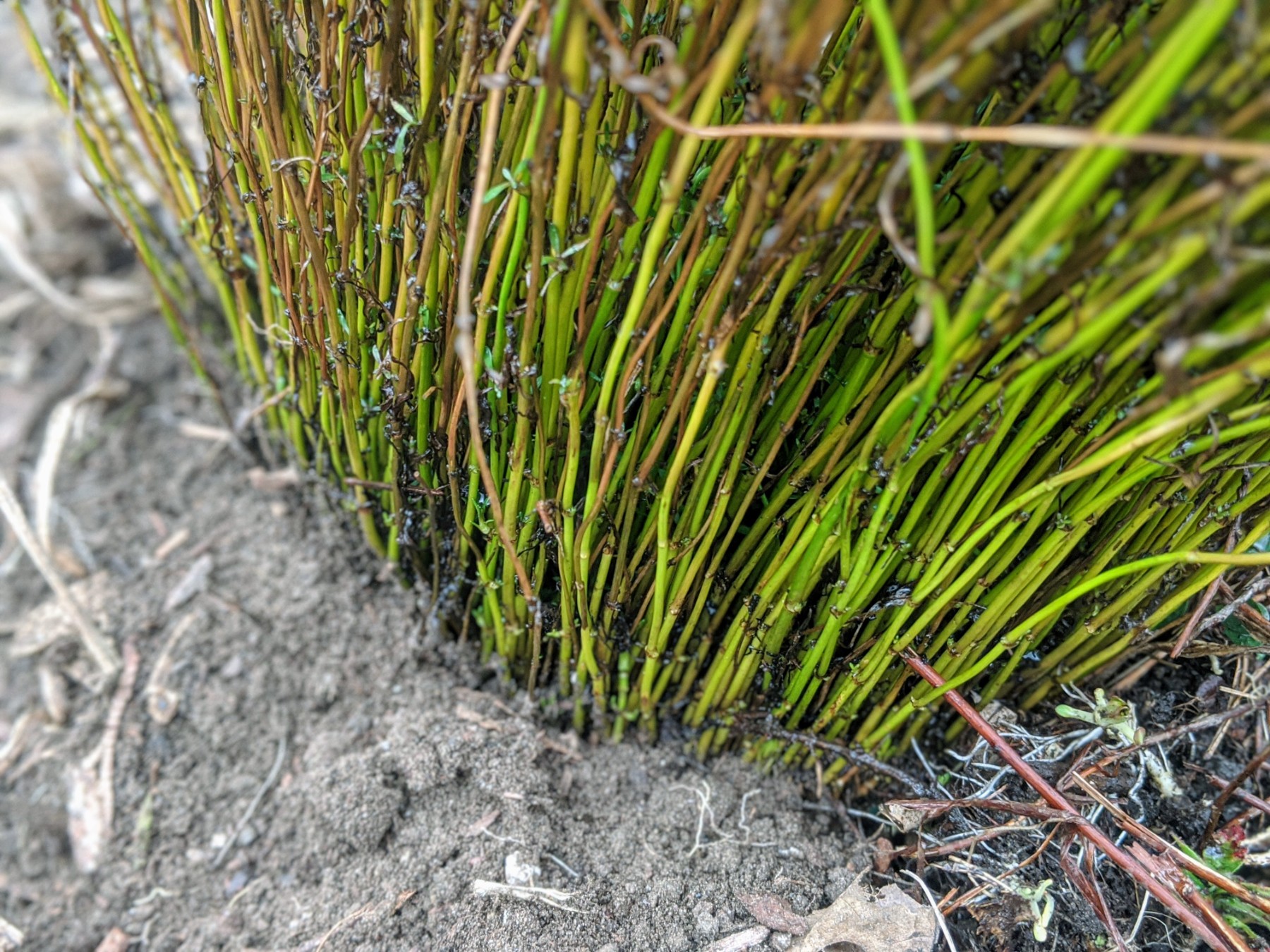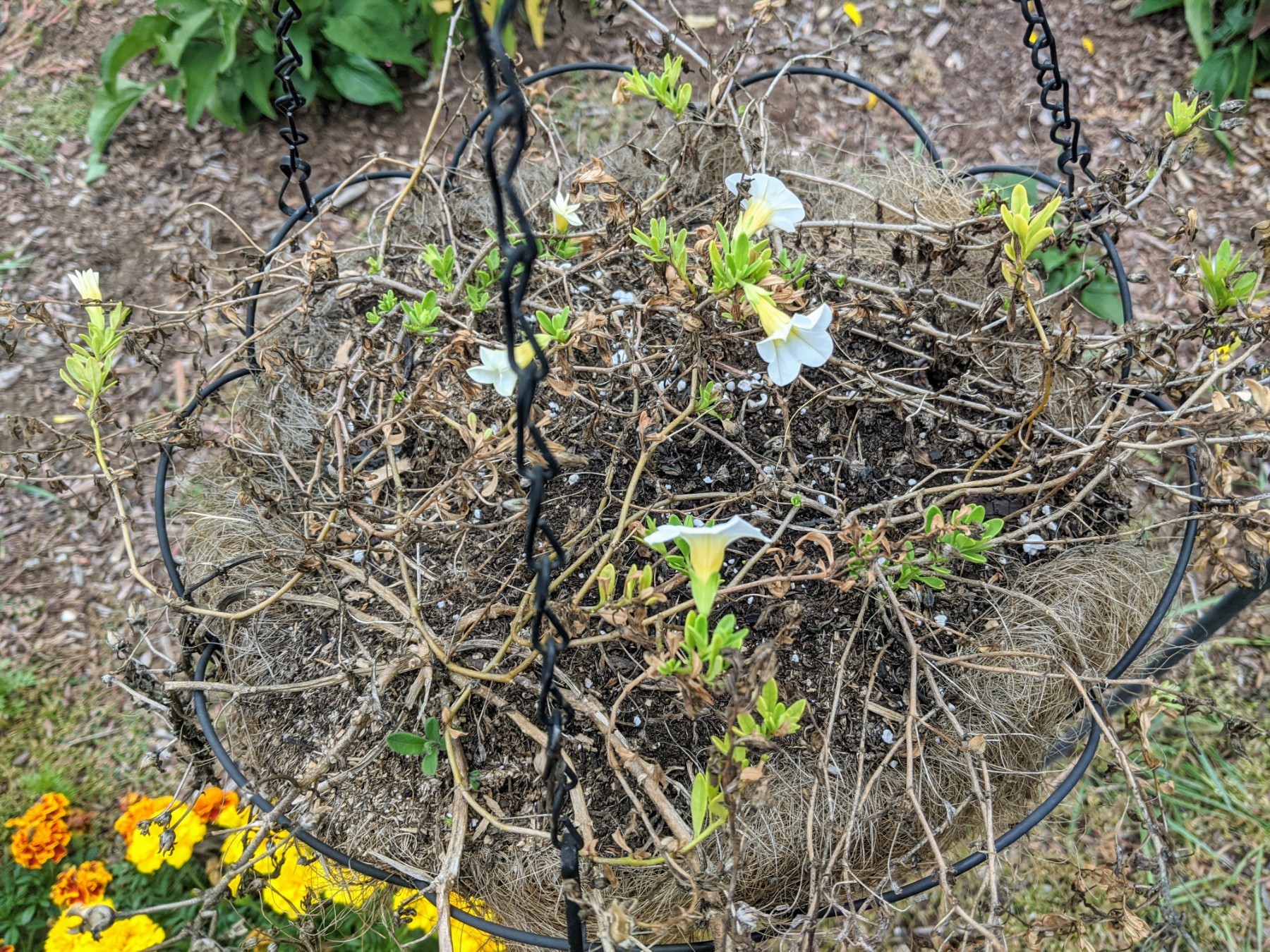O P I N I O N
VIRTUAL ROBIDOUX

 There was a lot weighing on my mind Sunday. I pulled on my gardening gloves and grabbed the shears. I needed a physical release from the mental gymnastics straining my brain. I went right for the milkweed, yanking a dozen faded stalks, the ripe pods releasing seeds that floated away on tiny white parachute puffs.
There was a lot weighing on my mind Sunday. I pulled on my gardening gloves and grabbed the shears. I needed a physical release from the mental gymnastics straining my brain. I went right for the milkweed, yanking a dozen faded stalks, the ripe pods releasing seeds that floated away on tiny white parachute puffs.
They had failed me, somehow. They were my lure for fat monarch caterpillars to morph into jade jeweled cocoons and continue their metamorphosis before my eyes. I let the milkweed take over my garden and in the end, they brought me nothing.
I unlocked my shears and went at the gangly rosebush canes that didn’t bear fruit, only clusters of useless leaves. I dodged the thorns as best as I could as I tossed them in the wheelbarrow. As I severed the rose limbs I was struck by the number of buds and blooms. By the time October lands there are always late-bloomers that arrive just when I need them most, and I savor them knowing the frost will wither them before they are spent. I fight the urge to cut them off from the source and plunge them into a vase for my own enjoyment. Deadheading in the fall doesn’t help them. They are designed to live and die where they are planted as winter closes in.

I gathered up the decayed remnants of my irises, uncovering the green shoots that will hibernate and regenerate in the spring, and made a mental note that some mulch or pine needles might help them stand straighter next season instead of toppling from the weight of the blooms. Ditto that for the rogue echinacea that propagated around the yard. They also toppled, even after I wrapped them with a thick white ribbon, gathering them up in a bunch with hope that strength in numbers would help them stand taller.
I locked eyes with the sunny blooms on the “perennial sunflowers,” which I purchased at a garden club sale many years ago. Airy and pleasant on the surface, their alter-ego, Jerusalem artichokes, create a network of unstoppable roots that strangle every other plant in its path, which is why I spent the spring pulling up the tender green shoots as quickly as they sprouted. In the end, there were a few plants that escaped my scrutiny and lived to bloom, just last week.
I didn’t flinch when I did what I had to do, pulling them out of the soil in the prime of their life, to save the innocents. It’s better not to think too much about their deceptive beauty. In the context of my garden, they are invaders.

Then I grabbed a hand spade and started digging next to the yellow coreopsis that was still green and sputtering yellow blossoms. It felt like grave-digging as I grabbed the potted plant that had never made it into the soil, a purple coreopsis that had devolved into brown sticks. The pandemic had somehow prevented me from completing my gardening tasks this season, the statewide drought discouraged me from watering. My work, my life, my distractions stopped me from pruning and primping, hovering and nurturing. A burial seemed like the least I could do before the snow gobbled them up.

As I turned the pot over I spied green at the roots of the plant, a sign of life. Maybe with enough mulch and a drink of Miracle-Gro, this plant won’t know the difference between neglect and hibernation. Maybe it will resurrect in the spring. Maybe it will reward me somehow for my best of intentions rather than my lapses, never making time to nestle it into warm soil while the blooms were exploding.
I brushed the dirt from my knees and peeled off my gloves, picking up the gardening tools and depositing them on the shelf for another season. My wheelbarrow, a full reflection of all that I had sown and reaped, all that had withered and failed.

My tomatoes, blueberries, strawberries, cucumbers and squash nourish me, and also the critters who I can’t scorn for taking their fair share. They don’t know why it all grows in their midst, only that it does. I’m the squatter in this ecosystem, and they have learned to live with me. What’s a few vegetables between neighbors?
Gardening is an obvious metaphor to me for life. It is action and inertia, success and failure, roses and thorns. Every season I learn something new, or remember something forgotten. There is beauty and rot. There are odds of survival and inexplicable failure to thrive. This is life on earth, whether you are plant or animal.
Tomorrow I will finish what I started. I’ll dump the load in the woods and then carry it all with me because it is my personal joy and my sorrow, another gardening season behind me with joy and regret.


Carol Robidoux is founder and publisher of Manchesterinklink.com.







